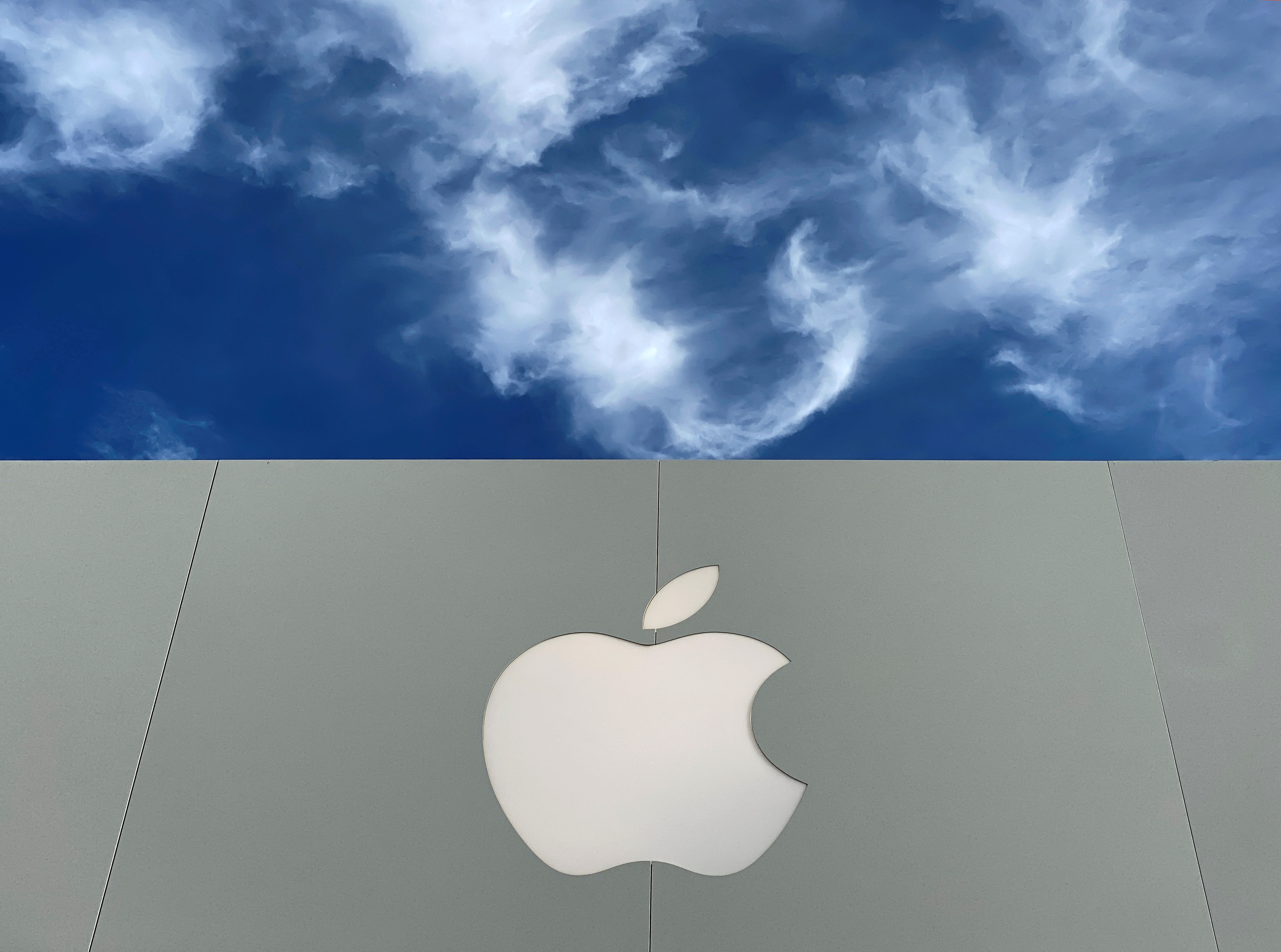
The Apple logo above an Apple Store in a shopping mall in La Jolla, California, United States, December 17, 2019. Photograph: Mike Blake/Reuters. Obtaining licensing rights
LUXEMBOURG (Reuters) – A European Union court made legal errors when it ruled in favor of Apple Inc on a 13 billion euro ($14 billion) tax order and should review the case again, an adviser to Europe’s top court said on Thursday. In a potential setback for the iPhone manufacturer.
The tax case against Apple was part of a crackdown by EU antitrust chief Margrethe Vestager against deals between multinational companies and EU countries that regulators deemed unfair state aid.
The European Commission said in its 2016 decision that Apple had benefited from two Irish tax rulings for more than two decades, artificially lowering the tax burden to 0.005% in 2014.
The European Union’s General Court in 2020 upheld Apple’s challenge, saying regulators did not meet the legal standards to show that Apple enjoyed an unfair advantage.
But Advocate General Giovanni Petruzzella at the Court of Justice of the European Union disagreed, saying the ECJ judges should set aside the General Court’s ruling and refer the case back to the lower court.
“The General Court’s ruling on the ‘tax provisions’ adopted by Ireland in relation to Apple should be set aside,” he said in a non-binding opinion.
He said that the General Court committed a series of legal errors and also failed to “correctly evaluate the substance and consequences of some methodological errors that, according to the Commission’s decision, invalidated the tax rulings.”
“It is therefore necessary for the General Court to make a new assessment,” Petruzzella said.
The European Court of Justice, which will rule in the coming months, follows about four out of every five such recommendations.
Ireland reiterated that it has not provided any government assistance to Apple.
“It is important to bear in mind that this opinion does not form part of the judgment of the Court of Justice of the European Union but is considered by the Court when reaching its final ruling,” Michael McGrath said in a statement.
“Ireland’s position has always been, and remains, that the correct amount of Irish tax has been paid and that Ireland has not provided any government assistance to Apple.”
While Apple and Dublin appealed against the tax order, Apple was nonetheless forced to hand over the full amount, which Ireland was holding in escrow.
The Irish government has long said that even if it loses its appeal and keeps the money, other EU member states will claim they are entitled to some back taxes.
An Apple spokesperson said: “We thank the court for its time and continued consideration of this case. The General Court’s ruling was very clear that Apple received neither selective advantage nor state assistance, and we believe that should be upheld.”
Vestager has had a mixed record defending her tax cases in court, with judges backing appeals from automaker Stellantis (STLAM.MI), Amazon (AMZN.O), and Starbucks (SBUX.O).
Its biggest legal victory to date came in September when the General Court upheld its decision against a €700 million Belgian tax scheme for 55 multinational companies. Its tax crackdown has forced EU countries to cancel such attractive deals.
Vestager is currently investigating the Dutch tax arrangements of IKEA brand owner Inter IKEA in a case dating back to 2017, and the Dutch tax rulings of Nike (NKE.N) and the tax rulings of Finnish food and beverage packaging company Huhtamaki (HUH1V.HE) awarded to Luxembourg.
The Apple case is C-465/20 P Commission v Ireland and Others.
($1 = 0.9346 euros)
Our standards: Thomson Reuters Trust Principles.

“Typical beer advocate. Future teen idol. Unapologetic tv practitioner. Music trailblazer.”






/cloudfront-us-east-2.images.arcpublishing.com/reuters/GBZVJFRH2NJRTKZTUSESWFYRAQ.jpg)
More Stories
JPMorgan expects the Fed to cut its benchmark interest rate by 100 basis points this year
NVDA Shares Drop After Earnings Beat Estimates
Shares of AI chip giant Nvidia fall despite record $30 billion in sales